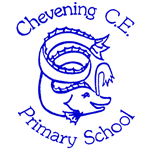Science
Subject Intent for Science
At Chevening Primary School, we not only want the children to gain a sound knowledge of the key components which constitute Science, but to also understand in the practical context, the importance it has to play within the world we live. We want our children to develop passion, confidence, interest and skills in science, in order to become critical thinkers. Not only do we want them to gain a greater understanding of the world around them, so that they can contribute to future cultures, economies and communities as potential successful scientists, explorers, researchers and investigators, but we would also like to in turn, equip them with the skillset that will further set them up for a lifetime of learning.
We believe that working scientifically through a practical and ‘hands on approach’ is the most effective way for our children to embed their learning of science. It is therefore at the heart of what we do and forms part of our children’s experience from Reception to Class 6. By working scientifically through problems, our children develop and build a solid foundation to learn about the nature and processes of science. Through our teaching, we foster our children’s natural curiosity about the world around them, provide opportunities for them to be actively involved in their own learning, and provide opportunities for them to be engaged and reflective. As a result, our children gain a solid scientific knowledge and understanding, whilst developing the skills necessary for testing and investigating.
The Chevening Curriculum is based on National Curriculum expectations, so we aim to ensure our children:
- develop scientific knowledge and conceptual understanding through the specific disciplines of biology, chemistry and physics
- develop an understanding of the nature, processes and methods of science through different types of science enquiries that help them to answer scientific questions about the world around them
- are equipped with the scientific knowledge required to understand the uses and implications of science, today and for the future.
In addition, to the developing of knowledge and concepts, we put great emphasis on developing the fundamental skills of working scientifically and ensure that these are embedded within each lesson. They are not taught as a separate strand, as our approach is to provide opportunities for our children to develop their investigative skills, develop their independence and autonomy in raising questions, and develop their ability to carry out investigations.
We are proud that our curriculum encourages the development and cultivation of our children’s personal skills and Christian values, including:
Honesty in analysing their initial predictions and evaluating their investigations, working out any potential improvements and changes they would make in future experiments. Perseverance to develop knowledge and hone skills, including a readiness to navigate both failure and success. Respect for scientific processes evident in the natural world around us and scientific hypothesis that may be different to their own. Courage to take risks when using their growing knowledge and skills to carry out investigative work and research, fostering a growth mindset and importance of becoming resilient learners. Love of the world around us and the knowledge and understanding that science has provided us with.
The three strands of our Biblical Vision, which are based on the parable of the Mustard Seed (Matthew 13: 31-32), form important foundations that underpin our teaching. The children much like the seed not only develop and flourish, both in terms of their knowledge, talents and skills, but they also learn how to be: true to themselves and honest when reflecting on their findings; kind and thoughtful, both when working with others and considering the work of others; inclusive when discovering about a diverse range of Scientists and valuing their theories.
We also pride ourselves on offering excellent opportunities to enrich our science curriculum through a variety of exciting and purposeful science trips, including local visits to Horton Kirby Educational Centre to learn more about rocks and fossils and Bore Place to supplement our learning of plants and flowers. We also travel further afield, to locations such as the Herstmonceux Observatory which helps consolidate the children’s learning about earth and space; to Drusillas Park and Yew Tree Farm School, so we can observe living things; and even embark on residentials to the Isle of Wight, where local environments and habitats are explored.
We regularly attend seminars and workshops hosted by local establishments, including the annual Science Day event for primary schools, at Sevenoaks School. Furthermore, we are privileged to be able to call upon a bank of practitioners, including vets, dentists, surgeons and occupational therapists, and have a wealth of parent involvement, all of whom further support our learning by coming in to share their professional expertise. Where possible, we also try to work in conjunction and support the local community and other charitable organisations; we have had visits from the Red Squirrel Survival Trust and also had the privilege of welcoming Kent Wildlife Trust to our school, who have shared their incredible knowledge pertaining to our many local habitats with us, through their interesting whole school talks (assemblies) and workshops. We also frequently use our natural surroundings; the school grounds, outside learning area and forest school to further develop and hone our scientific skills.
